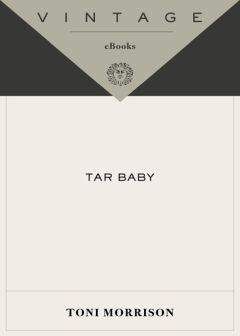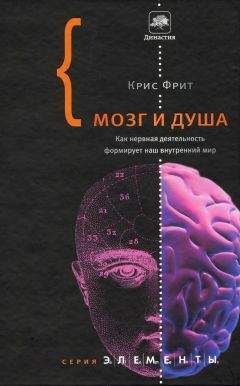Toni Morrison - Song of Solomon
Milkman rubbed the back of his head against the bark. This was what Guitar had missed about the South—the woods, hunters, killing. But something had maimed him, scarred him like Reverend Cooper’s knot, like Saul’s missing teeth, and like his own father. He felt a sudden rush of affection for them all, and out there under the sweet gum tree, within the sound of men tracking a bobcat, he thought he understood Guitar now. Really understood him.
Down either side of his thighs he felt the sweet gum’s surface roots cradling him like the rough but maternal hands of a grandfather. Feeling both tense and relaxed, he sank his fingers into the grass. He tried to listen with his fingertips, to hear what, if anything, the earth had to say, and it told him quickly that someone was standing behind him and he had just enough time to raise one hand to his neck and catch the wire that fastened around his throat. It cut like a razor into his fingers, tore into the skin so deeply he had to let go. The wire pressed into his neck then and took his breath. He thought he heard himself gurgling and saw a burst of many-colored lights dancing before his eyes. When the music followed the colored lights, he knew he had just drawn the last sweet air left for him in the world. Exactly the way he’d heard it would be, his life flashed before him, but it consisted of only one image: Hagar bending over him in perfect love, in the most intimate sexual gesture imaginable. In the midst of that picture he heard the voice of the someone holding the wire say, “Your Day has come,” and it filled him with such sadness to be dying, leaving this world at the fingertips of his friend, that he relaxed and in the instant it took to surrender to the overwhelming melancholy he felt the cords of his struggling neck muscles relax too and there was a piece of a second in which the wire left him room enough to gasp, to take another breath. But it was a living breath this time, not a dying one. Hagar, the lights, the music, disappeared, and Milkman grabbed the Winchester at his side, cocked it, and pulled the trigger, shooting into the trees in front of him. The blast startled Guitar, and the wire slipped again. Guitar pulled it back, but Milkman knew his friend would need both hands to keep it that way. He turned the shotgun backward as far as he could and managed awkwardly, to pull the trigger again, hitting only branches and dirt. He was wondering if there was another blast in the gun when he heard right up close the wild, wonderful sound of three baying dogs who he knew had treed a bobcat. The wire dropped and he heard Guitar breaking into a fast run through the trees. Milkman stood up and grabbed his flashlight, pointing it in the direction of the sound of running feet. He saw nothing but branches resettling themselves. Rubbing his neck, he moved toward the sound of the dogs. Guitar did not have a gun, otherwise he would have used it, so Milkman felt secure heading for the dogs with the gun in his hand even though it had no more shot. He didn’t miss; his sense of direction was accurate and he came upon Calvin, Small Boy, Luther, and Omar crouching on the ground a few feet away from the dogs and the glistening night eyes of a bobcat in a tree.
The dogs were trying their best to get up into the tree, and the men were considering whether to shoot the bobcat down, shoot a limb and make him jump down and fight the dogs, or what. They decided to try and kill the cat where he lay. Omar stood up and took his lamp over to the left. The cat crept a little ways out, following the light. Then Small Boy took aim and put a bullet just under the left foreleg and the bobcat dropped through the branches into the jaws of Becky and her companions.
There was a lot of life in the cat; he fought well until Calvin hollered the dogs away and shot it again, and once more, and then it was still.
They held the lamps over the carcass and groaned with pleasure at the size, the ferocity, the stillness of it. All four got down on their knees, pulling rope and knives, cutting a branch the width of a wrist, tying it and binding it for the long walk back.
They were so pleased with themselves it was some time before anybody remembered to ask Milkman what he was shooting at back there. Milkman hoisted the stake he was carrying a little higher and said, “I dropped the gun. I tripped and it went off. Then when I picked it up it went off again.”
They burst into laughter. “Tripped? What’d you have the safety off for? Was you scared?”
“Scared to death,” said Milkman. “Scared to death.”
They hooted and laughed all the way back to the car, teasing Milkman, egging him on to tell more about how scared he was. And he told them. Laughing too, hard, loud, and long. Really laughing, and he found himself exhilarated by simply walking the earth. Walking it like he belonged on it; like his legs were stalks, tree trunks, a part of his body that extended down down down into the rock and soil, and were comfortable there—on the earth and on the place where he walked. And he did not limp.
They met dawn in King Walker’s gas station for a rehash of the night they had spent. Milkman was the butt of their humor, but it was good-humored humor, quite unlike the laughter the trip had begun with. “Lucky to be alive. Cat wasn’t the problem; this here nigger was the problem. Blastin away at us while we got a mean cat gettin ready to chew us and the dogs up both. Shootin all through the woods. Could have blown his own head off. Don’t you city boys know how to handle yourself?”
“You country niggers got it all over us,” Milkman answered.
Omar and Small Boy slapped him on the shoulders. Calvin hollered to Luther, “Go get Vernell. Tell her to get breakfast ready. Soon’s we skin this cat, we comin in there with a appetite and she better be ready to meet it!”
Milkman went with them to the back of the station, where, on a small cemented area covered by a corrugated tin roof, the dead bobcat lay. Milkman’s neck had swollen so it was difficult for him to lower his chin without pain.
Omar sliced through the rope that bound the bobcat’s feet. He and Calvin turned it over on its back. The legs fell open. Such thin delicate ankles.
“Every body wants a black man’s life.”
Calvin held the forefeet open and up while Omar pierced the curling hair at the point where the sternum lay. Then he sliced all the way down to the genitals. His knife pointed upward for a cleaner, neater incision.
“Not his dead life; I mean his living life.”
When he reached the genitals he cut them off, but left the scrotum intact.
“It’s the condition our condition is in.”
Omar cut around the legs and the neck. Then he pulled the hide off.
“What good is a man’s life if he can’t even choose what to die for?”
The transparent underskin tore like gossamer under his fingers.
“Everybody wants the life of a black man.”
Now Small Boy knelt down and slit the flesh from the scrotum to the jaw.
“Fair is one more thing I’ve given up.”
Luther came back and, while the others rested, carved out the rectal tube with the deft motions of a man coring an apple.
“I hope I never have to ask myself that question.”
Luther reached into the paunch and lifted the entrails. He dug under the rib cage to the diaphragm and carefully cut around it until it was free.
“It is about love. What else but love? Can’t I love what I criticize?”
Then he grabbed the windpipe and the gullet, eased them back, and severed them with one stroke of his little knife.
“It is about love. What else?”
They turned to Milkman. “You want the heart?” they asked him. Quickly, before any thought could paralyze him, Milkman plunged both hands into the rib cage. “Don’t get the lungs, now. Get the heart.”
“What else?”
He found it and pulled. The heart fell away from the chest as easily as yolk slips out of its shell.
“What else? What else? What else?”
Now Luther went back into the stomach cavity and yanked the entrails out altogether. They sucked up like a vacuum through the hole that was made at the rectum. He slipped the entrails into a paper bag while the others began cleaning up, hosing down, salting, packing, straightening, and then they turned the cat over to let the blood drain down on its own hide.
“What are you going to do with it?” asked Milkman.
“Eat him!”
A peacock soared away and lit on the hood of a blue Buick.
Milkman looked at the bobcat’s head. The tongue lay in its mouth as harmless as a sandwich. Only the eyes held the menace of the night.
Hungry as he was, he couldn’t eat much of Vernell’s breakfast, so he pushed the scrambled eggs, hominy, fried apples around in the plate, gulped coffee and talked a lot. And, somehow, he had to get around to the purpose of his visit to Shalimar.
“You know, my grandfather came from somewhere near here. My grandmother too.”
“Did? From around here? What’s their name?”
“I don’t know her maiden name, but her first name was Sing. Any of you ever know anybody with a name like that?”
They shook their heads. “Sing? No. Never heard of nobody name that.”
“I had an aunt live down this way too. Name of Pilate. Pilate Dead. Ever hear of her?”
“Ha! Sound like a newspaper headline: Pilot Dead. She do any flying?”
“No. P-i-l-a-t-e, Pilate.”
“P-i-l-a-t-e. That spell Pie-late,” Small Boy said.
“Naw, nigger. Not no Pie-late. Pilate like in the Bible, dummy.”
“He don’t read the Bible.”
“He don’t read nothin.”
“He can’t read nothin.”
They teased Small Boy until Vernell interrupted them. “You all hush. You say Sing?” she asked Milkman.
“Yeah. Sing.”
“I believe that was the name of a girl my gran used to play with. I remember the name cause it sounded so pretty. Gran used to talk about her all the time. Seem like her folks didn’t like her to play with the colored children from over this way, so her and my gran used to sneak off and go fishin and berry-pickin. You know what I mean? She’d have to meet her in secret.” Vernell eyed Milkman carefully. “This Sing girl was light-skinned, with straight black hair.”
“That’s her!” Milkman said. “She was mixed or Indian, one.”
Vernell nodded. “Indian. One of old Heddy’s children. Heddy was all right, but she didn’t like her girl playin with coloreds. She was a Byrd.”
“A what?”
“A Byrd. Belonged to the Byrd family over by the ridge. Near Solomon’s Leap.”
“Oh, yeah?” said one of the men. “One of Susan Byrd’s people?”
“That’s right. One of them. They never was too crazy ‘bout colored folks. Susan either.”
“Do they still live there?” asked Milkman.
“Susan do. Right behind the ridge. Only house back in there with a brick front. She by herself now. All the others moved out so they could pass.”
“Can I walk it?” he asked.
“Most folks could, I reckon,” said Omar. “But after last night I don’t recommend it for you.” He laughed.
“Can you drive a car through?”
“Part of the way you can. But the road is narrow and messy back up in there,” said Vernell. “Horse, maybe, but not no car.”
“I’ll make it. Might take me a week, but I’ll make it,” said Milkman.
“Just don’t carry no guns”—Calvin cooled his coffee in his saucer—“and you’ll be all right.” They all laughed again.
Milkman thought about that. Guitar was out there someplace, and since he seemed to know everything Milkman was doing or getting ready to do, he’d also know he was going out to some ridge. He touched his swollen neck. He didn’t want to go anywhere alone without a gun.
“You ought to have a rest before you go trottin off anywhere,” Omar said, looking at him. “There’s a nice lady up the road a ways. She’d be proud to take you in.” The look in his eyes was unmistakable. “Pretty woman too. Real pretty.” Vernell grunted and Milkman smiled. Hope she’s got a gun, he thought.
She didn’t, but she had indoor plumbing and her smile was just like her name, Sweet, as she nodded her head to Milkman’s query about whether he could take a bath. The tub was the newest feature in the tiny shotgun house and Milkman sank gratefully into the steaming water. Sweet brought him soap and a boar’s-bristle brush and knelt to bathe him. What she did for his sore feet, his cut face, his back, his neck, his thighs, and the palms of his hands was so delicious he couldn’t imagine that the lovemaking to follow would be anything but anticlimactic. If this bath and this woman, he thought, are all that come out of this trip, I will rest easy and do my duty to God, country, and the Brotherhood of Elks for the rest of my life. I will walk hot coals with a quart of kerosene in my hand for this. I will walk every railroad tie from here to Cheyenne and back for this. But when the lovemaking came, he decided he would crawl.
Afterward he offered to bathe her. She said he couldn’t because the tank was small and there wasn’t enough water for another hot bath.
“Then let me give you a cool one,” he said. He soaped and rubbed her until her skin squeaked and glistened like onyx. She put salve on his face. He washed her hair. She sprinkled talcum on his feet. He straddled her behind and massaged her back. She put witch hazel on his swollen neck. He made up the bed. She gave him gumbo to eat. He washed the dishes. She washed his clothes and hung them out to dry. He scoured her tub. She ironed his shirt and pants. He gave her fifty dollars. She kissed his mouth. He touched her face. She said please come back. He said I’ll see you tonight.
Chapter 12
At four o’clock he knocked on the door of the only house back of the ridge with a brick front. Fresh and shining in the army fatigues Sweet had washed and pressed, he had tramped along feeling ready for anything. But he didn’t think Guitar would jump him in the daytime on a winding path (which they called a road) that cut through hilly land that was nevertheless tilled and had a smattering of houses and people. If he did confront him (with anything other than a gun) Milkman was sure he could take him, but it would be best to get back before nightfall. He didn’t know what was on Guitar’s mind, but he knew it had something to do with the gold. If he knows I’m here and where I have been and what I did in each place, then he must know that I’m trying to get it, doing just what I said I would do. Why would he try to kill me before I got it or even found out what happened to it? Most of it was a total mystery to him, but the part that was clear was enough to keep him alert and jittery all the way.
The Byrd house sat on a neat lawn separated by a white picket fence from the field grass on either side of the property. A child’s swing dangled from a cedar tree; four little steps painted blue led up to the porch, and from the window, between fluttering curtains, came the smell of gingerbread baking.



